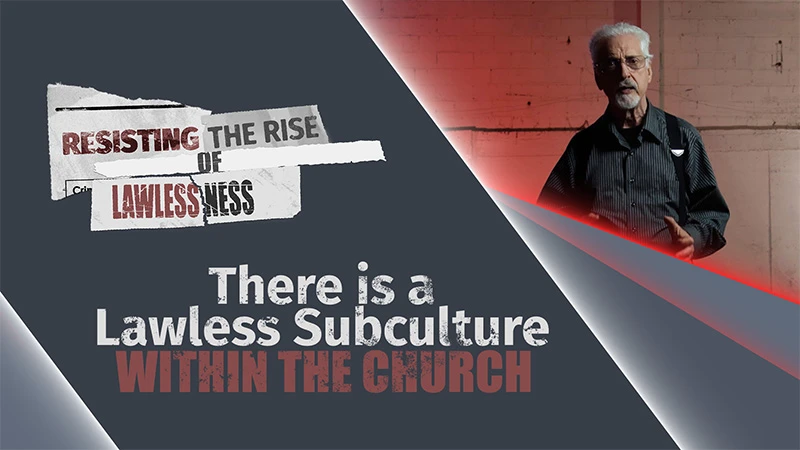
How to Build an Effective Support Group
Small gatherings have always been an integral part of Christianity. Jesus, Himself, lived in a small group as He and His disciples traveled throughout the countryside together. He had those occasions when He spoke to the multitudes, but He spent enormous amounts of time building spiritual character into the small band of men under His personal care.
Later, during the early days of the Church, believers quietly met together in various intimate settings. “And day by day continuing with one mind in the temple, and breaking bread from house to house, they were taking their meals together with gladness and sincerity of heart.” (Acts 2:46) Throughout Church history, and especially during times of vehement persecution, small groups and home fellowships have played a crucial role in Christianity.
The concept of a small group of believers meeting together for the purpose of encouraging each other spiritually certainly has biblical and historical roots. In our present situation, where Christian men are continually bombarded with sexual imagery and temptation, support groups have emerged as the modern-day, streamlined method of providing aid to those who struggle.
However, as in any form of counseling, the effectiveness of support groups varies greatly. Some offer genuine help, while others actually do more harm than good. Major pitfalls can be avoided through a proper understanding of the dynamics involved in running a successful group. A group which God can use to change lives needs two essential components: biblical accountability and the proper goal.
1. The Place of Accountability
Many of the support groups operating in today’s churches have been founded by men who are themselves struggling with habitual sin. Viewing accountability as their primary solution, they start their own group in the hopes of helping themselves and others at the same time.
Bringing secret sin into the open plays a vital role in escaping habitual sin. But biblical accountability was never meant to be a group of men sitting in a circle discussing their failures. Such a setting may be somewhat helpful to men who need to bring their sin out into the open, but there is no inherent power in such a situation to set them free.
The concept of accountability is in Scripture, but not in the weak way in which it is often used today. The typical struggling Christian who attends a support group meeting looks to church services to be spiritually fed and then to his group as his primary weapon to attack his addiction. Unfortunately, this game plan usually isn’t very effective. He needs something more.
Take Bill, for instance. He goes to a solid church where other believers regularly enter into genuine worship and where the Word of God is earnestly preached. He also attends a 12-step meeting for Christian sex addicts. And yet, he seems stuck on a merry-go-round of failure, confession and “repentance.” Assuming he sincerely wants freedom, why isn’t he finding it?
He is missing a key ingredient: discipleship. He is not receiving this at church or in his group meetings. A man struggling with sin may hear sermons, but unless he is held accountable to respond to those words, the benefit he derives from them will probably be minimal. He is lost in a crowd of listeners. He can ignore, disregard, even disagree with what he is hearing, and is never required to face the truth of what is being taught.
{{blog-bwalk="/blog-ads-storage"}}
Those living in spiritual defeat need a mentor who can walk them through the process of deliverance and lead them into maturity. When a godly man dedicates himself to discipling the struggling brother, something powerful happens. Truth is imparted. Sin is dealt with head-on. The mentor expects change. Most importantly, the man experiences firsthand someone who is walking in the light and confronting him. This is the biblical pattern for accountability.
The apostle Paul mentioned this process in Galatians 6:1 when he called upon believers “who are spiritual” to step forward to help those who have been caught in the trap of sin. The term “spiritual” is defined in the previous chapter of Galatians as: a believer who has a history of crucifying “the flesh and its passions and desires,” (vv. 17, 24); a believer who is led, controlled and influenced by the Holy Spirit (vv. 16, 18, 25); and a believer whose life manifests the fruit of the Spirit (vv. 21-22). Those characteristics should be clearly evidenced in the life of anyone who is put into a position of spiritual leadership.
The truth is that a person can lead another spiritually only as far as he has gone himself. Jesus said, “...if a blind man guides a blind man, both will fall into a pit.” (Matthew 15:14) It is helpful to a certain extent to open up with other people about one’s struggles, but real discipleship is far more powerful in its ability to change lives. And the one who is leading them must have an established life in God before he is going to be able to help others.
2. The Proper Goal
The second key to running a group that generates significant results is having the proper goal firmly established in the mind of the group’s leader. Obviously, the goal is to help men become liberated from habitual sin. The problem is that people have differing ideas on what it means to be “free.” To some, freedom means no more than keeping the practice of the addictive sin to a minimum. Lacking an understanding of God’s power to free a man from bondage, the best solution they can offer the man is life-long dependence upon “accountability.”
Accountability has its place, but the more important issue is that the person needs inner transformation. If he doesn’t experience the heart change that is promised in the New Covenant, then, yes, all he can ever hope for is the momentary help which might be afforded him in a support group. Those who have not had their own hearts transformed have little comprehension of, or trust in, God’s power to change a person’s life. Thus, they do not view sin as something that must be renounced and forsaken; they see it as something which should be controlled or “maintained.” This weak attitude toward sin keeps the struggling person in a “white-knuckle” existence, always just one step away from disaster.
If this is the standard that is presented in the group setting, you can rest assured that no one will ever go beyond it. Instead, the standard which should be clearly defined to all participants is complete freedom from the power of sin and complete devotion to a life of holy living.
It should go without saying that this will never be established in the group unless it has become the reality of the leader’s personal life. If he is struggling along, identifying himself with his sin (i.e. “My name is Bruce; I am a sex addict.”), possessing a half-deliverance in his own life, how can he offer any real hope to his followers?
It is my firm conviction that if there isn’t a godly man available who is able to lead others into freedom, then a group should not be started.
The men who come looking for help to a group led by an uncommitted or defeated Christian will only become more disenchanted with Christianity and more cynical toward the belief that God can actually set them free. In other words, a group like that is likely to do more harm than good. It would be better for those sincerely seeking freedom to be driven to desperation by their need—compelled to find their help from God no matter the cost—than to be offered half measures such as a weak support group.
The two essentials of a group which will produce lasting fruit are discipleship and the firmly established goal of true godliness for the life of every man. These two components can only be established by the person in charge. Without a godly leader moving men toward spiritual maturity, the whole group is surely headed for the nearest ditch.

















